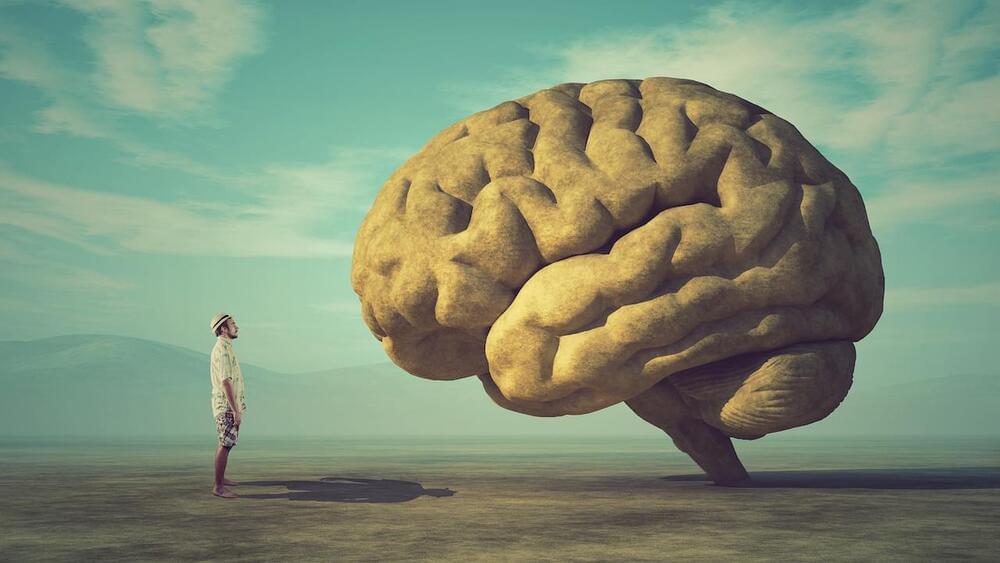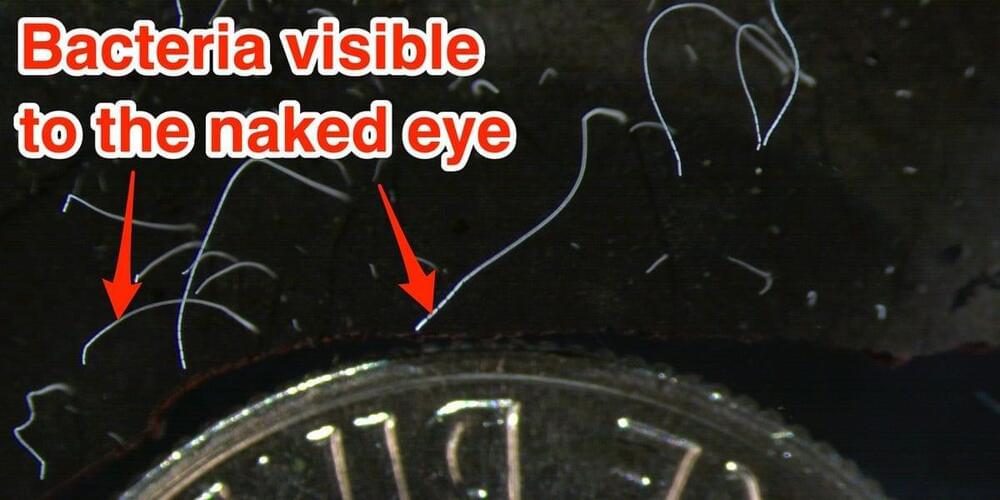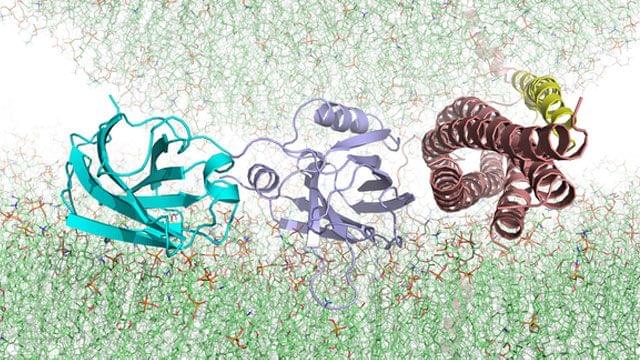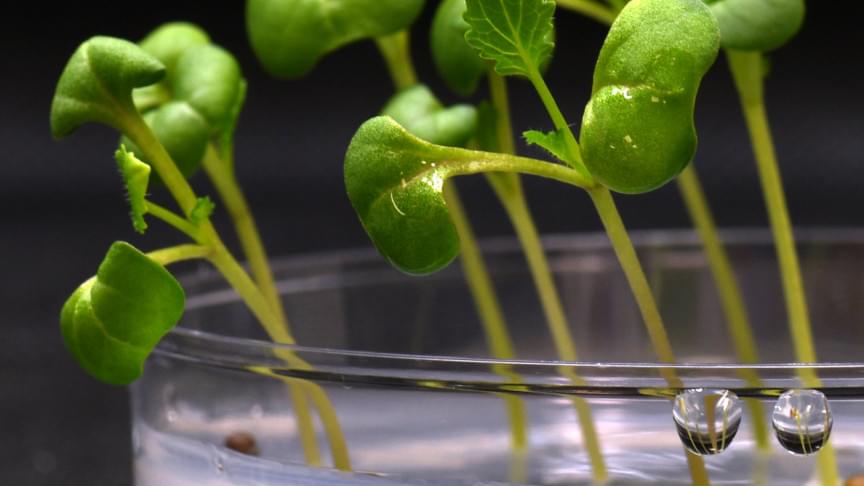#brain on #acid LSD #conscious #experience #science #trippy #reality #mind #wow #neuroscience #amazing #dopamine #seretonin


Amazon introduced the technology at Amazon re: MARS 2022, its annual AI event centered around machine learning, automation, robotics, and space. Alexa AI head scientist Rohit Prasad referred to the upcoming feature as a way to remember friends and family members who have passed away.
“While AI can’t eliminate the pain of loss, it can definitely make their memories last,” Prasad said.
Prasad demonstrated the feature using a video of a child asking Alexa if his grandmother could finish reading him a story. In its regular Alexa voice, the smart speaker obliged; then the grandmother’s voice took over as the child flipped through his own copy of The Wizard of Oz. Though of course there’s no way for the viewer to know what the woman’s real voice actually sounds like, the grandmother’s synthesized voice admittedly sounded quite natural, speaking with the cadence of your average bedtime story reader.

Although the name and scenario are fictional, this is a question we have to confront now. In December 2021, Melbourne-based Cortical Labs grew groups of neurons (brain cells) that were incorporated into a computer chip. The resulting hybrid chip works because both brains and neurons share a common language: electricity.
In silicon computers, electrical signals travel along metal wires that link different components together. In brains, neurons communicate with each other using electric signals across synapses (junctions between nerve cells). In Cortical Labs’ Dishbrain system, neurons are grown on silicon chips. These neurons act like the wires in the system, connecting different components. The major advantage of this approach is that the neurons can change their shape, grow, replicate, or die in response to the demands of the system.
Dishbrain could learn to play the arcade game Pong faster than conventional AI systems. The developers of Dishbrain said: “Nothing like this has ever existed before … It is an entirely new mode of being. A fusion of silicon and neuron.”
New anthropological research suggests our ancestors enjoyed long slumbers.



Decades of research has led to a thorough understanding of the main protein players and the broad strokes of membrane fusion for synaptic transmission. Bernard Katz was awarded the 1970 Nobel Prize in Medicine in part for demonstrating that chemical synaptic transmission consists of a neurotransmitter-filled synaptic vesicle fusing with the plasma membrane at nerve endings and releasing its content into the opposing postsynaptic cell. And Rizo-Rey’s longtime collaborator, Thomas Südhof, won the Nobel Prize in Medicine in 2013 for his studies of the machinery that mediates neurotransmitter release (many with Rizo-Rey as a co-author).
But Rizo-Rey says his goal is to understand the specific physics of how the activation process of thought occurs in much more detail. “If I can understand that, winning the Nobel Prize would just be a small reward,” he said.
Recently, using the Frontera supercomputer at the Texas Advanced Computing Center (TACC), one of the most powerful systems in the world, Rizo-Rey has been exploring this process, creating a multi-million atom model of the proteins, the membranes, and their environment, and setting them in motion virtually to see what happens, a process known as molecular dynamics.

The researchers also optimized their electrolyzer to produce the highest levels of acetate ever produced in an electrolyzer to date. What’s more, they found that crop plants, including cowpea, tomato, rice, green pea, and tobacco, all have the potential to be grown in the dark using the carbon from acetate. There’s even a possibility that acetate could improve crop yields, though more research is required.
The researchers believe that by reducing the reliance on direct sunlight, artificial photosynthesis could provide an important alternative for food growth in the coming years, as the world adapts to the worst effects of climate change — including droughts, floods, and reduced land availability. “Using artificial photosynthesis approaches to produce food could be a paradigm shift for how we feed people. By increasing the efficiency of food production, less land is needed, lessening the impact agriculture has on the environment. And for agriculture in non-traditional environments, like outer space, the increased energy efficiency could help feed more crew members with less inputs,” Jinkerson explained.
Superhumans are coming! Various technological advances in the field of medicine through AI and CRISPR are going to radically alter our understanding of what it means to be human. AI and Crispr technology have been making revolutionary changes to the field of medicine. Artificial intelligence is being applied in identification of harmful genes and treatment of disease.
Multiple new gene editing technologies in addition to artificial intelligence will cause major changes in healthcare.
The gene-editing tool CRISPR, short for clustered regularly interspaced short palindromic repeats, could help us to reprogram life. It gives scientists more power and precision than they have ever had to alter human DNA.
Could it be conceivable that at one point in the future we could increase the average IQ of the population?
CRISPR technology in the future could enable efficient and affordable treatment of many diseases. It will be also probably used to enhance our intelligence.
CRISPR was originally designed as a technique for editing the DNA of living organisms, but its uses and capabilities have expanded substantially. It is now used widely in biomedical research, including research into human genetics. One of the main issues concerning technologies such as CRISPR-Cas9 is accuracy and safety, as mistakes can have significant and dangerous consequences when it comes to an individual’s genome.
David Sinclair explains the mind boggling breakthroughs of medicine in recent times.
The possibility of altering the sequences of genes and correcting the mistakes that were previously irreversible opens many new possibilities for research. Nevertheless, for now, genetic editing technology is still incapable of making the hundreds of changes presumably necessary to make a superintelligent human. But the corresponding ethical issues deserve serious attention before these capabilities become a reality.
Artificial Intelligence is touching almost every aspect of our lives. It’s reasonable to expect AI influence will only increase in the future. One of many fields heavily influenced by AI is the military. Particularly in the development of Supersoldiers. The notion of super-soldiers enhanced with biotechnology and cybernetics was once only possible in the realm of science fiction. But it may not be too long before these concepts become a reality.
A new worldwide arms race is pitting countries against each other to be the first to successfully create real genetically modified super soldiers by using tools such as CRISPR. Understandably many of these human enhancement technologies raise health and safety questions and it is more likely these enhancements will first gain traction in countries that do not place as much weight on ethical concerns.
According to US Intelligence, China has conducted “human testing” on members of the People’s Liberation Army in hope of developing soldiers with “biologically enhanced capabilities.
This has made the U.S. military’s top intelligence agencies increasingly worried but the Pentagon has significantly invested in its own research in AI and in the extension of the human senses beyond their current physical limitations, to provide soldiers with superhuman abilities.
The basics of brain-machine interfaces with AI are being developed for the military, and if the results are as successful as scientists hope they will be, soldiers could one day be enhanced with cybernetics, effectively becoming trans-human soldiers.
The US Military is also examining newly scientific tools, like genetic engineering, brain chemistry, and shrinking robotics, for even more dramatic enhancements. But most of this advanced technology remains classified.